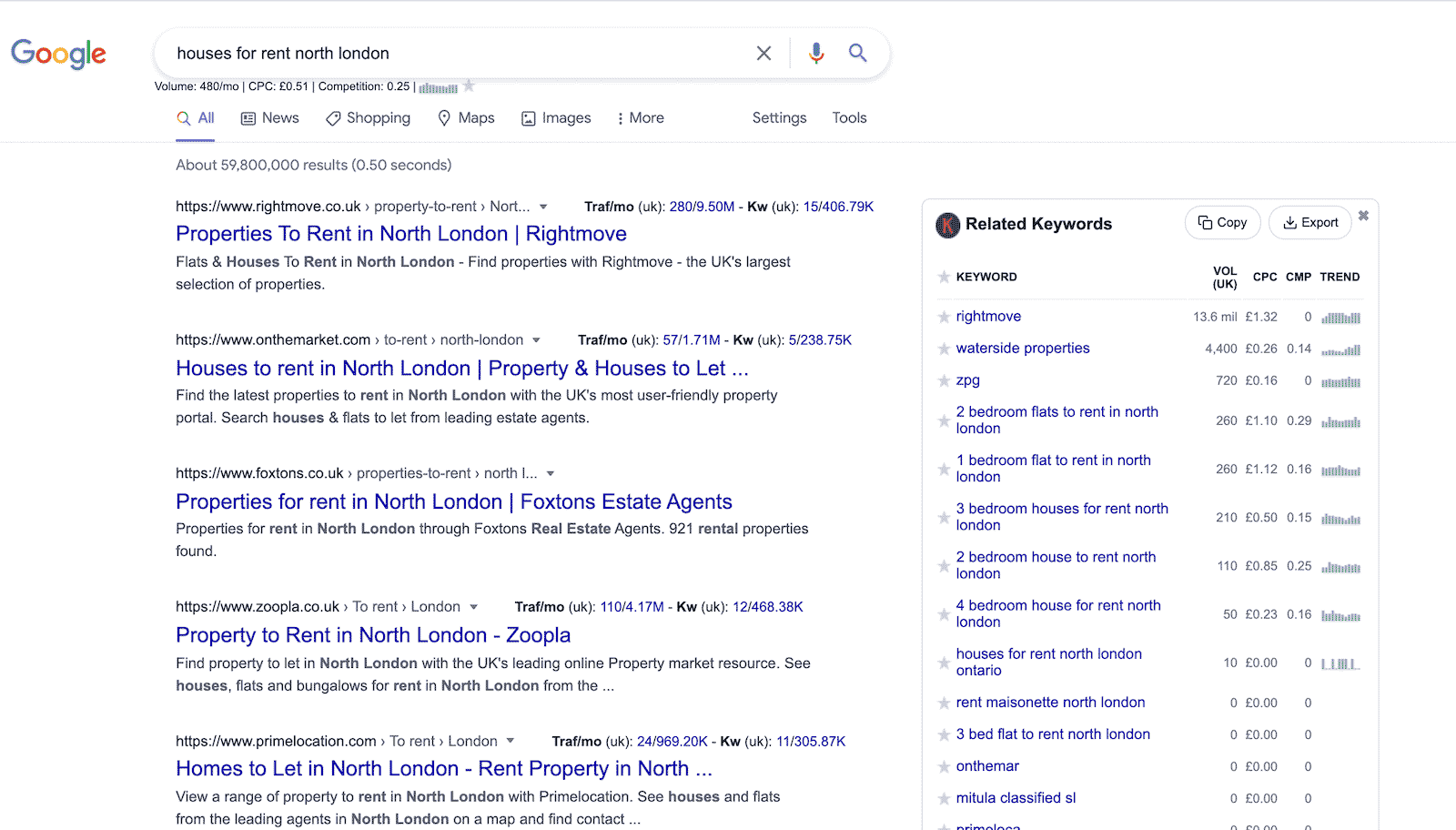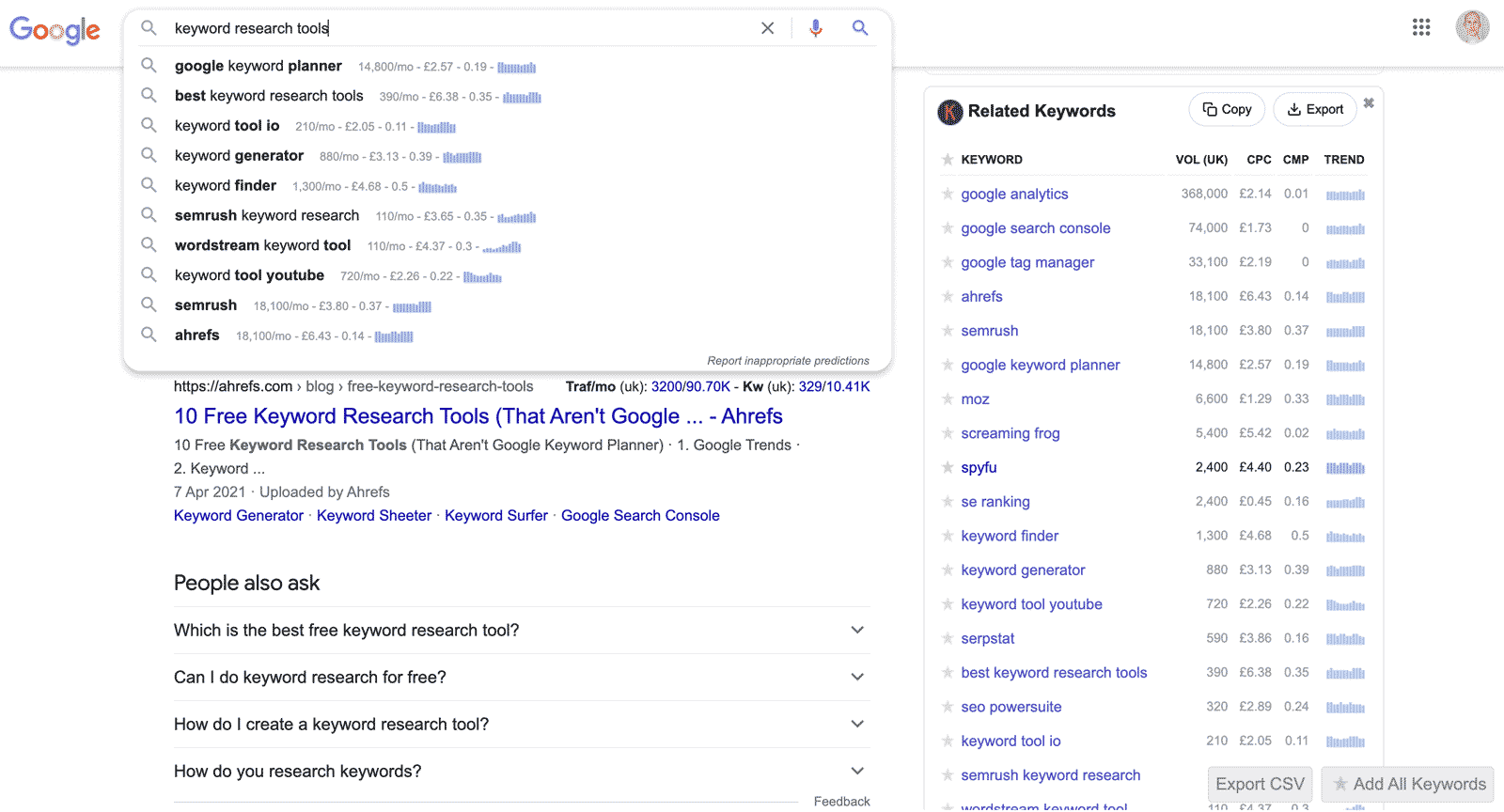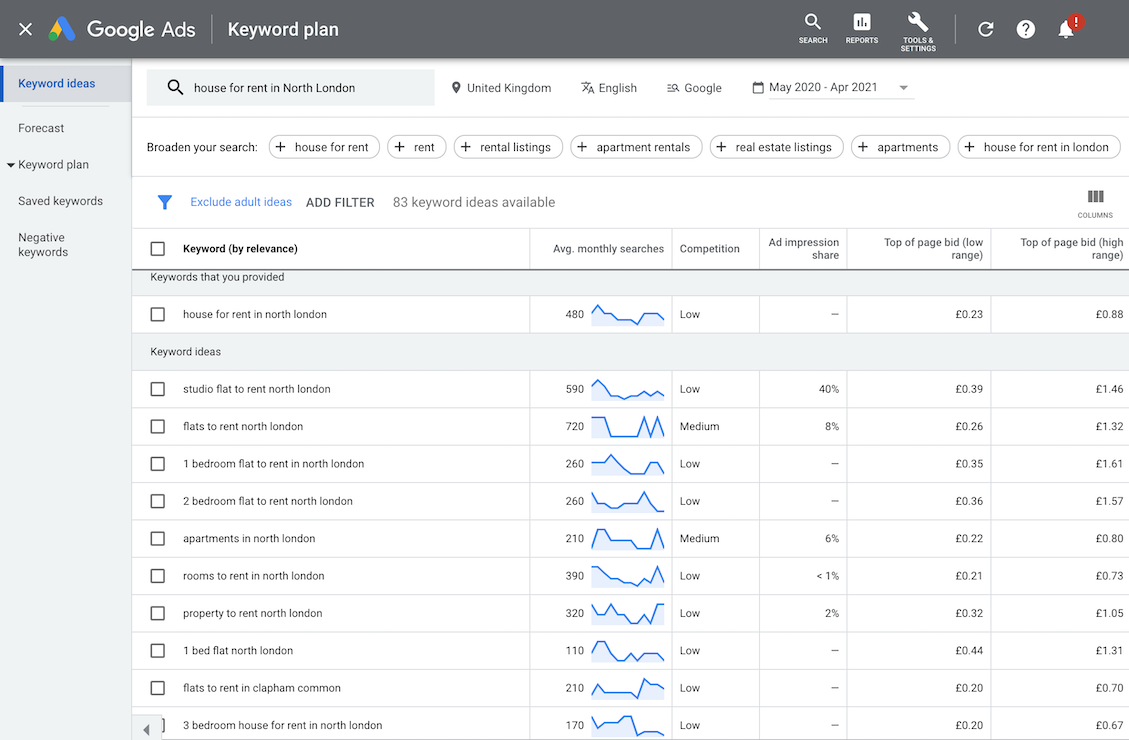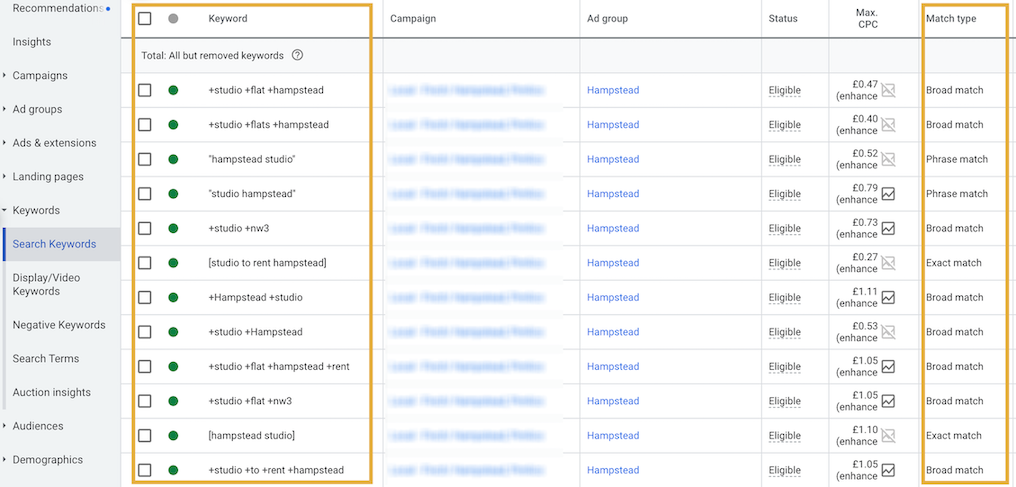
Today, I’m going to share some simple tips for researching keywords for your PPC campaigns, with the aim of getting more leads for property rental companies. This post could be useful for you if you work for an estate agent, a property management company or a private landlord. Read on to discover how I approach keyword research for rental properties.
PPC keywords for Google Ads tend to follow a certain pattern. For property rentals, I have found that most keywords can be in the following template (the exact order will often change around):
Adjective + property type + location + for rent / to rent / rentals / lettings...
The two core elements are property type and location. Let’s look at an example of house rentals in North London.
Basic keyword combinations will be:
Then, people could be using different terms for the property type:

PPC Keywords for real estate campaign are almost always location based. As a rule of thumb, more specific search queries tend to lead to higher intent.
More specific searches will go on to use adjectives, for example:
As you’ve probably realised from the examples above, this could lead to a huge number of keyword combinations. You should target some of them but not all of them. It’s time to explain my simple philosophy for PPC keywords.
Google Ads, as we know it in 2021, expands keywords for you. What this means is that you might tell Google to target a specific keyword, but it will actually show it when people search for other terms. These are called search terms.
For example, if you’ve targeted the keyword House rent North London, Google will show it for different searches such as:
And even:
Ideally, these would be closely related to your original search. In reality, Google will also show your keywords for irrelevant searches. Unfortunately, they still collect the click money so it’s our job to make sure the search terms are actually relevant for us. Here is how I control them.

One of my favourite keyword research tools is Keywords Everywhere. It shows keyword volumes and adds a related keywords tab to the search results.
You'll probably want to make sure you're not missing on any important words and phrases. There are tools out there to help you with keyword research and a lot of them are paid. For PPC campaigns I use Google's own Keyword Planner. If I'm researching SEO I will use more tools. Keyword Planner has the option to either expand your keyword ideas and show volumes and costs. You can also throw in some competitor URLs and get a bunch of useful suggestions. I'm also a big fan of Google suggestions. These are the suggestion Google shows as you type in the search field. I start writing some core keywords to see if the search engine will give me and more ideas around them.

The keyword planner within Google Ads can help you discover targeted keywords with high search volumes.

Selecting the right keyword match type gives you more control over when your ads are shown.
A keyword’s match type allows you to control how tight or loose your targeting around that keyword will be. Here are the current match types:
Also known as pure broad, these keywords give Google Ads freedom to show your ads whenever it thinks there’s relevance. Using broad keywords used to be an absolute no-go for PPC professionals but Google has improved them a lot. My general rule of thumb here is that the more mainstream your keyword is, the higher the chance of relevance. This is because Google can more easily understand the meaning and intent behind what you’re trying to target.
These are being phased out as I’m writing this article. They have been that weapon of choice for most Google Ads account managers over the years.
Simply put, by adding a + in front of a keyword, means that Google will show this keyword as it is, with little variance.
This match type is being revamped to replace +broad +modified. By placing the words between “quote” marks, you’re telling Google you want this phrase but you can have additions before or after it. This used to also mean that the words had to stay in the right order. My experience with the new phrase match is that it will show quite loose matching of your original keyword, and if it’s a niche topic then this can miss the mark.
These are the strictest of match types. Exact used to mean exact but, again, Google will show your ad for other words if it thinks that it’s relevant.
Sorry, I got a bit carried away with the match types but I think they’re an important concept to understand when making choices. Here’s my approach to choosing keywords for the long list that you’ve researched:
If you start with one of the looser match types, you can probably begin with a handful of keywords. In practice, using loose match types will mean that you reach a lot more combinations. Your job then will be to go through the search terms (what Google actually showed your ads for) and do two things:
As a general rule of thumb, the looser your match type, the more specific your keyword needs to be. If you start with pure broad keywords, don’t choose keywords with only two words. Go for longer keywords that will help Google understand what you’re trying to achieve.
Keywords for property rentals tend to follow a certain formula. Start by targeting words with a healthy volume and work your way up to an optimised PPC account, with keywords that convert well.
I manage PPC campaigns for property companies in London and the UK. My clients include residential letting companies, serviced apartments, hotels and commercial property. I run Effectivemarketing.uk, a digital agency for SMEs. We’re a friendly bunch and love a challenge so why don’t you give us a call. Go on, I dare you…
Odi Caspi
